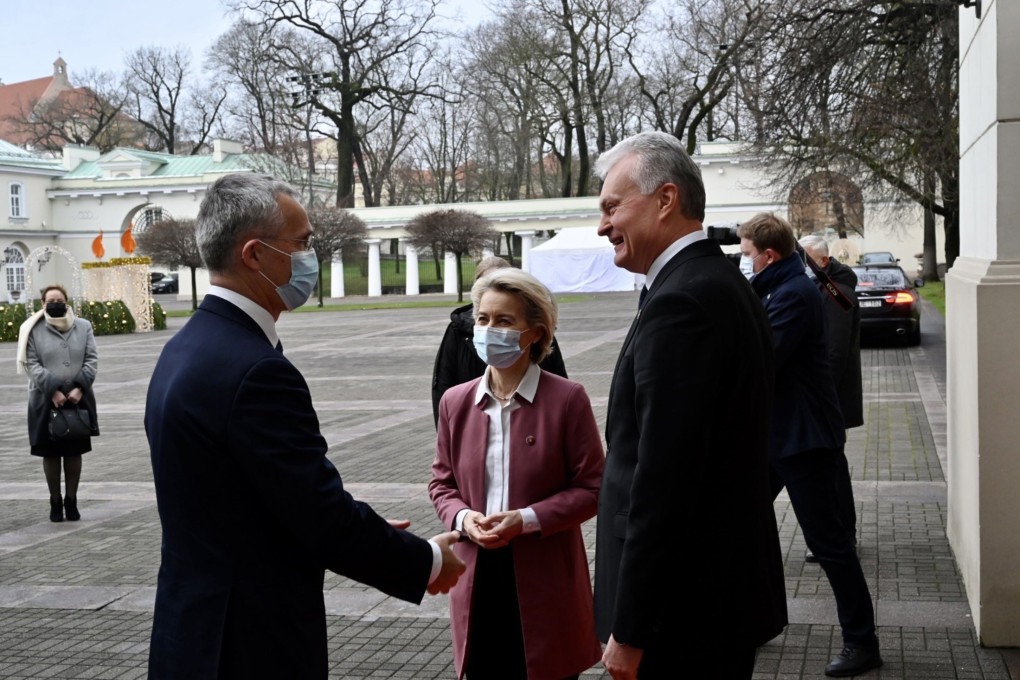Advertisement
China snubs EU efforts to mediate in Lithuania row, as trade embargo worsens
- Chinese customs says it is too preoccupied with the coronavirus pandemic to discuss alleged trade block
- Lithuanian vice-foreign minister is not surprised, but calls the action ‘hypocritical’
Reading Time:4 minutes
Why you can trust SCMP
79

Finbarr Berminghamin Brussels
The Chinese customs authority has rejected the European Union’s request to discuss an alleged trade block on Lithuanian firms, claiming it is too preoccupied with the coronavirus pandemic.
The EU has vowed to investigate claims from Lithuania that the Baltic nation had been frozen out of the Chinese customs system.
But its initial advances were knocked back, according to sources familiar with the matter.
Advertisement
It now plans to raise the situation with other levels of the Chinese government, after threatening Beijing on Wednesday with a lawsuit at the World Trade Organization (WTO) if claims made by Lithuanian businesses were verified.
China’s General Administration of Customs did not immediately respond to a faxed request for comment.
Advertisement
Lithuanian vice-foreign minister Mantas Adomenas told the South China Morning Post that he was “not surprised” that the Chinese authorities had declined to meet, but described the action as “hypocritical”.
Advertisement
Select Voice
Select Speed
1.00x